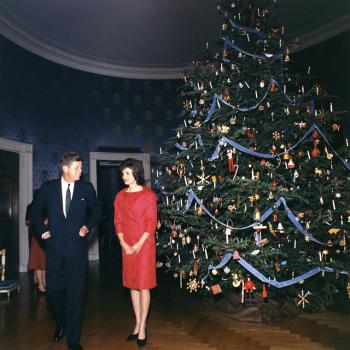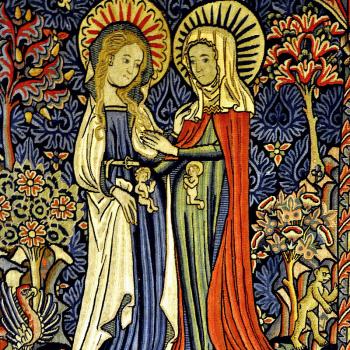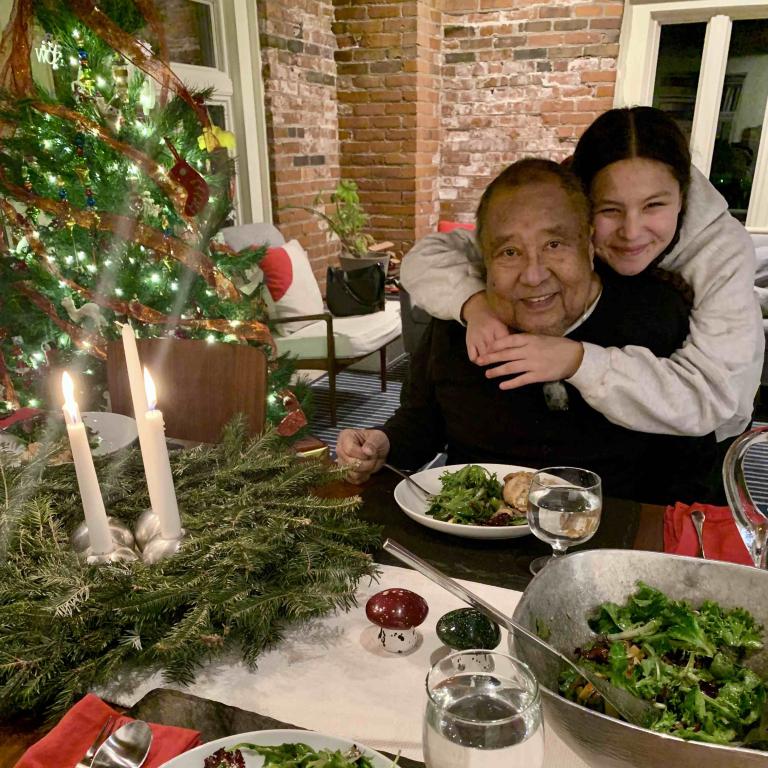
Christmas is a holiday that celebrates family. This is true for Christians who celebrate Christmas as a religious holiday. The nativity scene that Christians display to commemorate the birth of Jesus Christ is, at its most basic level, a depiction of a family: the Holy Family of Mary, Joseph, and Baby Jesus. And it’s also true for those Americans who celebrate Christmas primarily as a non-religious cultural holiday. In a 2017 Pew study, the vast majority of respondents (82 percent) said they planned to celebrate Christmas by gathering with relatives. Even representations of Christmas in American popular culture—songs like “I’ll Be Home for Christmas” and films like It’s a Wonderful Life—put family at the center of the holiday.
But how do you celebrate a holiday that is all about family when you know that being with your family is not always possible? What does it mean to celebrate Christmas when you know that this Christmas might be the last Christmas when you can all be together?
I’ve been dwelling on these questions a lot lately. At 41, I’m now at the phase in my life when I spend a significant amount time caring for elderly family members. So many of my relatives, including my own parents, are aging, contending with precarious health, and facing uncertain futures. Most significantly, they are dying. Last month I attended a funeral for a particularly beloved aunt—an event that forced me to recognize that I have limited time with my parents and the aunts and uncles in their generation who helped raise me.
I know that I’m not alone. Census Bureau statistics show that in the United States, the growth of the older population has spiked in the past ten years. Today, one in every six Americans is over the age of 65. There are millions of people who, like me, have been scheduling family holiday celebrations around doctor visits and other eldercare responsibilities.
This sobering reality has fundamentally changed how I celebrate Christmas. It saddens me deeply to know that the Christmases I have left with my parents and their generation are numbered. And yet this recognition makes me unexpectedly and unapologetically hungry for Christmas joy and all the family gathering and merry-making that the holiday brings. Accepting that my time with my older relatives is finite and irreplaceable, I find myself eager to make memories and create Christmas magic—both with and for my family—more than ever before.
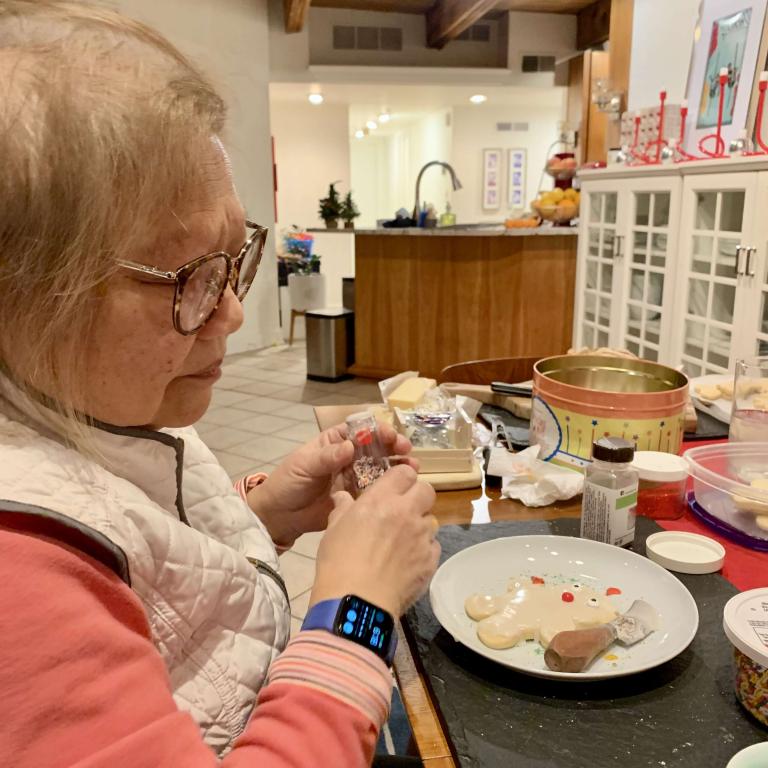
Generally speaking, talk of making memories and creating Christmas magic focuses on what parents do for children. Christmas is not only a holiday that centers families, but one that largely centers children. My social media feed is flush with images of how modern parents go to great lengths to bring delight to their kids: clever “Elf on the Shelf” arrangements, colorful coordinated Christmas pajamas, carefully prepared cookie-and-carrot platters left out for Santa and his reindeer. I love all of these efforts, in part because they inspire me to find new opportunities to bring joy to my own daughter.
More importantly, they remind me of the myriad ways my own parents made Christmas magic for me when I was a child. I remember, for example, the delight of hearing our doorbell ring late one Christmas Eve, running to the door with my family, and discovering a pile of elaborately wrapped presents sitting on our front porch. (To this day, I still do not know how my parents had arranged this trick.) I remember the delight of opening presents on Christmas morning: when in third grade, my siblings and I all received matching swim parkas, and when in fourth grade, I received my own hardcover copy of Roget’s double-index International Thesaurus. (My mother and father, in their remarkable parental wisdom, somehow knew that I would eventually become a writer.) And I remember the delight of visiting beloved relatives—cousins and aunts and uncles—and spending full days feasting on homemade lumpia and Christmas cookies, singing and playing the piano together, watching movies together, and laughing and sharing stories together.
My mother and father, Filipino immigrants with humble resources, always found ways to enrich my childhood with magical Christmas moments that would later become cherished memories.
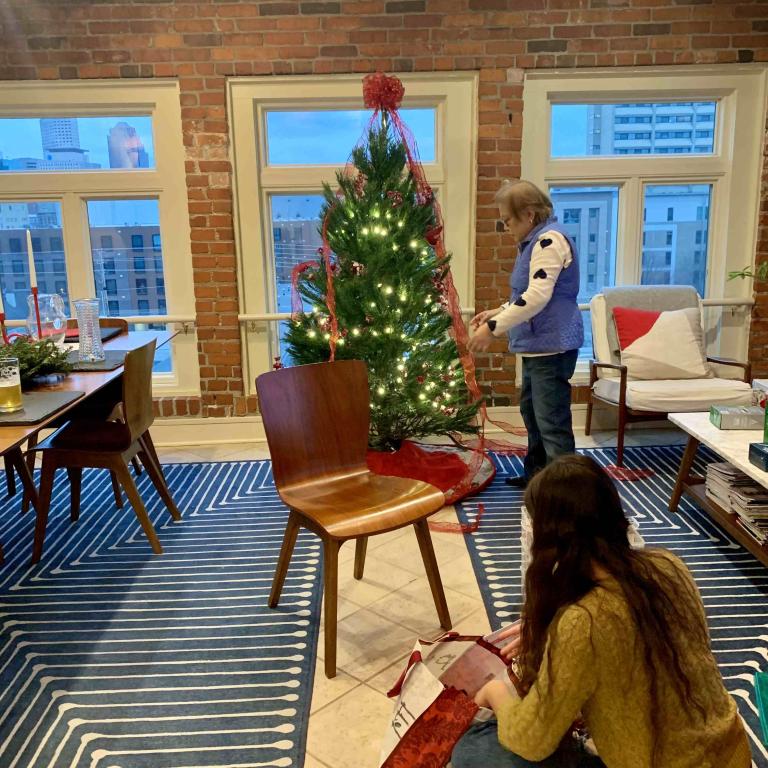
Now it’s 2023, and I’m an adult. My parents are older, their health is fragile, and their Christmases are limited. Our roles are different, and now I’m the one who thinks about how I can make memories and create Christmas magic—but this time, as a child for my parents.
It’s an undertaking that I hadn’t taken seriously until this particular Christmas, when new developments caused me to rethink my approach to the season. Several relatives have passed away in recent years, while others, including my father, are dealing with significant health challenges and daunting medical procedures. None of us knows what 2024 has in store for us, and the uncertainty weighs heavily on all of us.
And so I’ve been celebrating Christmas with gusto this year. I brought double the amount of homemade Christmas cookies and lasagnas to the family potluck. I decorated my home with extra lights and candles and garlands. I filled the stockings with excessive amounts of sweets and placed unprecedented piles of presents under the tree. I played Josh Groban’s Noel—my parents’ favorite Christmas album—nonstop in the car and in my home for five weeks.
I’ve done all these things with a single thought in the back of my mind: this year could be the last year I do these things with my family. This reasoning reminds me of how my friends with young children explain their own extravagant Christmas merry-making. “Our children won’t be little forever,” they say. I consider a similar thought in my head: “My parents won’t be here forever.”
If I’m being honest, part of me wonders if I’m using Christmas festivities as a form of escape and a way to avoid the painful truth that my parents are aging and nearing the end of their lives. Whether or not doing all the baking and decorating and gift-giving is the best way to cope, I’m at least clear-eyed about this truth: whatever happens in the coming year, the time to gather together, to make Christmas magic together, and to be a family together is now.

The celebration of family that occurs during Christmas is a beautiful tradition, but it bears a fundamental problem: families change. Some of these changes are welcome, such as the birth of a much-anticipated baby. But there are also painful changes—divorces, migrations, sicknesses, deaths—that mean we may never see each other, celebrate with each other, and be with each other ever again.
Herein lies the wisdom of focusing on being fully present to create Christmas magic and make memories. In the end, memories will be the most precious thing we have left.






